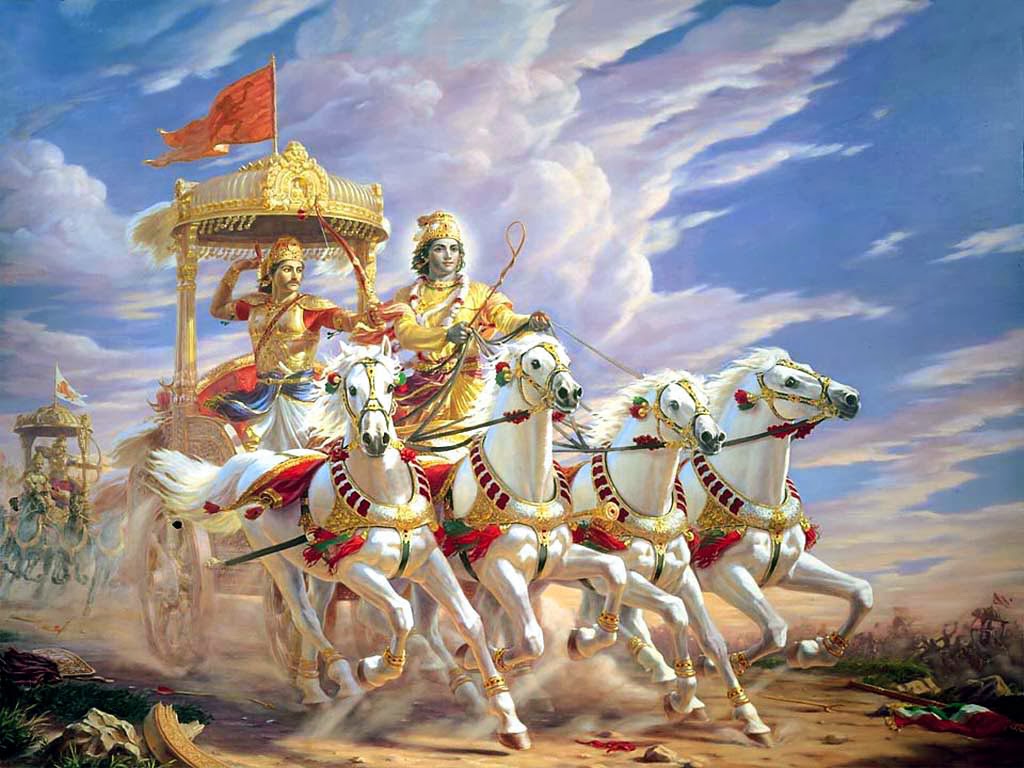When one thinks of ‘Mahabharat’ they
imagine war, violence and the battle for power, surrounded by a story of varied
characters. The Mahabharat, written by Sage Vyasa is an epic poem, comprising one hundred thousand
stanzas. It is the largest single
literary work in existence.
But what is Mahabharat, really? We might know the basic story, having heard about its many instances since childhood. But like every other fable we heard growing up, does this one have a moral too?
Yes. And not just one, but countless morals.
This gripping story about the fate of the Kuru dynasty displays instances and
situations that one may face in all walks of life and puts forward characters
with unique qualities, each being relatable to the readers. The way events
unfold, and the way each person reacts to them is different. Through its mild
and unopinionated verses, the Mahabharat hints at the difference in mentalities
of people.
Consider, for example, the incidents that
took place when the Pandavas and Kauravas were children. Out of juvenile
jealousy resulting from the lack of their grandfather’s attention, Duryodhana
tried, on multiple occasions, to poison Bheema. At a point when their knowledgeable
grandfather, Bheeshma should have intervened and taught them right from wrong,
he decided to stay mum and thus an enmity was initiated between the cousins.
This insinuates that indifference can lead to great catastrophes.
There is a mention of the story of Eklavya, whom Drona refused to teach archery because of his lower caste in society. A determined Eklavya, however built a statue of Drona and mastered the art till he was better than the greatest archer Arjun. As gurudakshina, which is a gift to your teacher on mastering of a skill, he was asked to cut off the thumb of his right hand, which he did without hesitation. This incident describes the immense respect given to teachers or learned people in the society.
When the game of dice was played, Yudhishthir lost all his senses and
betted away his belongings, wealth and even his brothers and wife Draupadi. One
tends to forget reasoning when bad habits like gambling are implemented. This
was followed by the disrespect and stripping of Draupadi before the assembly.
At that time, she raised questions about the fairness of the game and the
treatment given to her, to the elders. That was a moment when everyone expected
Bheeshma to stand up for her and punish his grandsons, which, as we all know,
did not happen. This sets a perfect example of how diplomacy is not always the
answer.
Even thirteen years later, when the Great
War commenced, the wise uncle Vidura warned the blind king Dhritarashtra about
the known outcome of the battle and asked him to talk some sense into his son.
But as always, out of the love for his son, the king did not intervene and
paved way for the termination of his own clan.
In
the Kurukshetra, Arjuna was dejected about the idea of killing his own cousins
and relatives on the opposite side, which is when Krishna explained to him the
importance of ‘dharma’ or duty. And from his beautiful and valid teachings
arises the Bhagwad Gita, the holy book of Hinduism. Its teachings are said to
be useful to all generations at all times.
Additionally, the characters themselves show us the various qualities
and drawbacks in men. Yudhishthir, the eldest Pandav, was a man who never
strayed away from righteousness. And the one time he slipped, his holy chariot
touched the ground. Bheema, who was physically stronger than everyone,
sometimes tended to use his strength in the wrong way. Arjuna, the greatest
archer in the world, lost all his will power at a crucial time due to his
emotions. Karna, on the Kaurava side, was said to be matched up to Arjuna in
his skills. In spite of the emotional turmoil of fighting with his own
brothers, he stuck to his duty towards his friend Duryodhan. Duryodhan, who
himself has been shown in a dark light throughout Mahabharat, was actually very
knowledgeable about politics and was a very good leader. But his jealousy and
hatred towards the Pandavas led to his demise.
We get to learn a lot about the principles of
life and the supremacy of good over evil through this classical work of
literature. The encyclopedic character and cultural importance of the Mahabharata are characterized by this statement:
"That which is found in these pages may be found elsewhere, but what is
not in these pages exists nowhere."
-(Non-extempore Speech, First Year, Engineering)

No comments:
Post a Comment